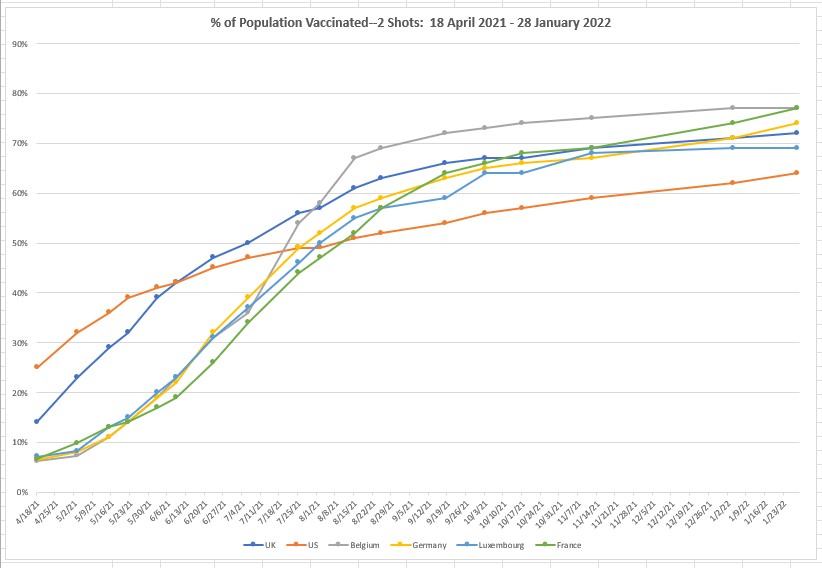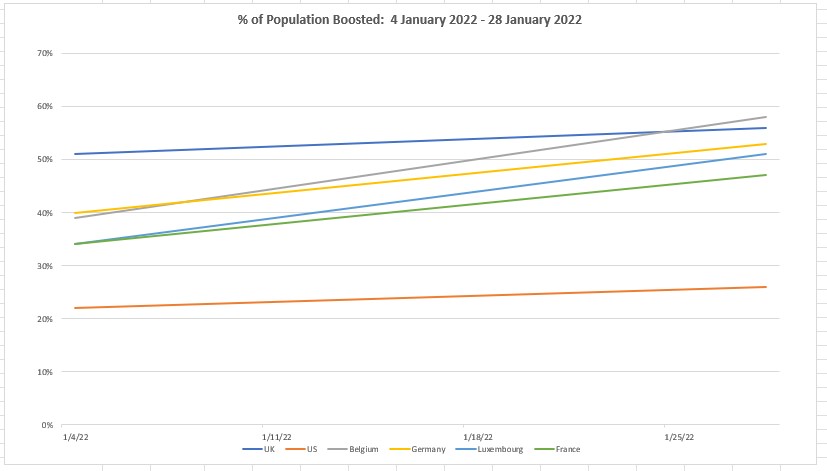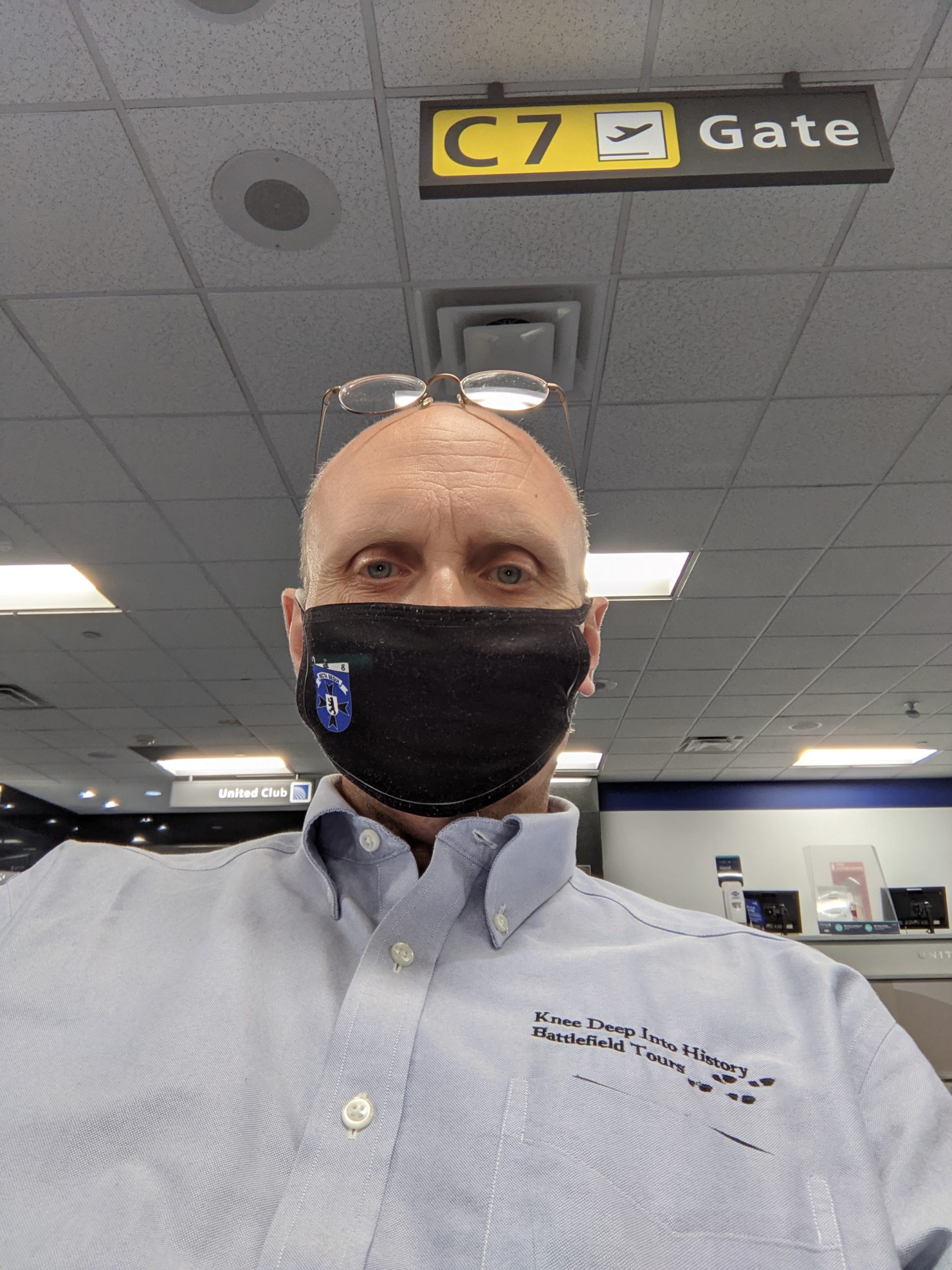Dear friends,
Welcome to 2022! It’s now February, and time to start thinking about taking that trip to Europe. With that in mind, I thought it a good idea to provide Knee Deep Into History’s first Covid-19 travel update for 2022.
Let’s start with a few general observations:
- First, the United States of Europe is not united. One must review the travel guidelines and restrictions for each country one plans to visit. (At the time of this writing, most EU countries are classifying the U.S. as a red zone, i.e. high-risk, country based on case count, but not a country that has a concerning virus variant.)
- Second, the general trend in Europe has been to make it difficult for un-vaccinated people to travel to Europe for non-essential (i.e. tourist) travel.
- Third, travelers should also get their booster shot, if possible, as many countries are wanting travelers to be “fully vaccinated.”
- Fourth, don’t go anywhere without your vaccine card, and convert it to a European digital certificate, if possible.
- Fifth, don’t forget that the CDC has testing requirements that need to be met before returning to the United States.
- The takeaway: Europe remains open for travel in spite of the increased hurdles but prepare yourself so you know what to expect.
Here’s the standard look at Covid-19 vaccinations in key countries:

And here is a new chart looking at the percentage of people who have received boosters:

The links below will take readers to Covid-19 travel sites for key countries in Western Europe. Regulations for any country can generally be found by typing the country name and “Covid-19 travel.” Readers planning to visit a specific country should continue to monitor the regulations for that country, as regulations change when cases rise or fall, new variants debut, etc. It is important that each traveler understand the requirements for themselves, so I will not attempt to summarize them. I will say, however, that France and Luxembourg appear to be the least onerous—as long as one is fully vaccinated. Germany appears to be the most onerous, requiring a ten-day quarantine for travelers from high-risk countries that can be reduced to only five days after a successful test. Its current website is also difficult to understand. One positive: To respond to increasing travel complexity airlines, hotels, etc. have generally become much more flexible for travelers, waiving re-booking fees, etc.
Visiting Luxembourg – Coronavirus – Official information – Luxembourg (public.lu)
What to do when you arrive in Belgium? | Coronavirus COVID-19 (info-coronavirus.be)
COVID-19: entry and quarantine regulations in Germany – Federal Foreign Office (auswaertiges-amt.de)
Finally, here is the link for the CDC’s travel website.
As in 2021, we welcome any comments from recent travelers. The information some of you gave us last year certainly helped convince others to travel. So please keep the information flowing.
Hoping to get knee deep into history with many of you on the battlefields of Europe in 2022!
Randy Gaulke and Markus Klauer
#kneedeepintohistory #kdih #WW1Tours #WW2Tours #Battlefieldtours

Leave a Reply